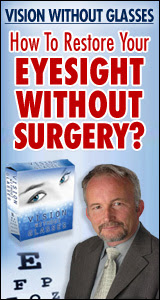Events, Perception, Truth, and Subjective Reality
![]() Steve Pavlina, Guest
Steve Pavlina, Guest
Waking Times
What exactly is an event?
An event is something that happens at a given place and time. An event is essentially a point or interval in space-time.
Place and time are both relative concepts.
To define a place, you need a reference location. Places are defined by relationships, such as by coordinates (relative to a coordinate system) or directions (relative to a starting location).
To define a time, you must also use relationships, such as a time’s relationship to the present moment or to another date and time.
When you try to define events in objective terms, you internally translate them into subjective terms anyway.
If someone gives you a date and time, you’ll naturally interpret it relative to your present moment or relative to some other event in your past or future or in your memories. If someone tells you a location, you naturally interpret it relative to your current location, your home, or some other location you’re familiar with. When and where only hold meaning when they can be translated into terms relative to your when and your where.
Events and Perception
All the dates and locations you have stored in your memory came from your perceptions. Maybe you experienced those events directly, or maybe you learned about them from another source. Either way that knowledge came via your perceptions. So it stands to reason that your entire knowledge of space-time comes through your perceptions. Hence, anytime you consider an event in space-time, you’re considering that event as filtered through your perceptions. You’re considering that event relative to yourself.
We like to think of objective frames of reference as things that exist outside of ourselves. When you say, “Let’s be objective about this,” it’s a suggestion for everyone to step outside their personal perspectives and to consider reality from a perspective that exists outside of them. In truth this is merely an illusion, however, since objectivity is always ultimately translated into subjective terms. We can’t escape the fact that all of space-time comes to us through our perceptions, including the memories we rely upon when we’re trying to be objective. Objectivity is something you had to learn about through your subjective senses.
You see… objectivity is simply an extra layer of abstraction on top of subjectivity. When you talk about objective events, what you’ve actually done is defined a space-time coordinate system relative to yourself, and then you placed events within that coordinate system. But if you remove the abstraction layer, you can see that you actually plotted events relative to yourself.
Even if you try to define an event that exists outside yourself, you’re still being self-referential (i.e. “outside of me”), and therefore you’re still being subjective.
The point here is that all events are both self-referential and subjective. You cannot have an event which is completely outside of you. You are in fact a necessary component of every event that occurs. You are the observer.
Objective Events
Suppose a bomb explodes in another city. You read about it in the news the next day. What is the actual event that occurred?
You might be inclined to say that the event was the explosion that happened the previous day. Its place is the other city where the explosion occurred. Its time is some particular time of day yesterday. This is how you would plot the event in space-time.
 But if you define events this way, you aren’t paying attention to what really happened.
But if you define events this way, you aren’t paying attention to what really happened.
The actual event was your reading the news and learning about the explosion. Then you plotted that event in your memory. You imagined it and stored it.
Later on you may create new events by accessing your memory to recall that story. Memory is re-imagination.
The actual event occurred within your imagination. In fact, this is the only true location where events can occur.
Consider this: What if there was no bomb and no explosion? What if the news story was false? What if you read a retraction about that story the next day?
According to the original interpretation of this event, you got duped. The event never happened. The story wasn’t true.
And yet, you reacted as if the story had been true. Maybe it affected you emotionally. What caused that effect? It wasn’t the explosion, since no explosion actually occurred. Now if the explosion really had occurred, can you still claim that this was the actual event you were reacting to?
If this is how you interpret events, then you have to acknowledge that your mind is probably littered with lots of false events. You picked up untrue information through mistakes or intentional deception here and there, but you memorized it in the form of real events. This means you can’t really trust the contents of your own mind. Some of it is true. Some of it is false. And a lot of it is probably a mixture of truth and falsehood.
What effect will this have on you? It will create doubt, won’t it? If you know you’re capable of storing false events in your memory, then you can’t fully trust your memories, can you? You can’t be too sure of anything.
When you hear a report of a new event, how will you respond? If the event seems significant, you’ll probably want to verify the truth of it. You’ll be naturally skeptical. In fact, that would be the most intelligent approach because you wouldn’t want your mind to get cluttered with false memories. So skepticism is a natural result of a belief in objective events that occur outside of you. If your root assumption is that reality is objective in nature, then skepticism is a sensible strategy.
So if I tell you the President of the USA was assassinated today, you’ll want to verify that independently. It would be unwise for you to assume I’m telling you the truth. You’ll have some measure of doubt upon hearing such a report from just one person. It could be a lie, a trick, or something else entirely.
Also, it stands to reason that your mind will be filled with knowledge that you consider fuzzy. You’ll experience a lot of uncertainty in terms of trying to nail down what is true and what isn’t. What exactly happens at Area 51? What’s the real reason the USA invaded Iraq? Does your girlfriend really love you? Does your boss think you’re doing a good job? What’s the best diet to eat? Your life will be filled with such uncertainties.
Digging to uncover the truth becomes an endless quest. You can never eliminate uncertainty. The more you dig, the more questions you discover. The quest for objective truth is a metaphysical snipe hunt.
Am I suggesting that this interpretation of events is somehow wrong? Not at all. It’s a perfectly valid interpretation. I simply want to point out that this interpretation leads to certain natural consequences. It generates an endless loop of skeptical questioning and lifelong uncertainty. That isn’t a good or bad thing per se. It just is.
Subjective Events
Let’s return to our bomb story. What’s the subjective method of interpreting this event?
In this case we would say that your awareness of the story is the event. The story arises within your consciousness, and you perceive it. You imagine the explosion occurring. Your imagination impacts you and gives rise to other thoughts and feelings. This act of perception is in fact the event.
 So what if the story turns out to be false? Does this invalidate what you experienced? No. You never objectified the explosion to begin with. There is no “out there.” Your perception is the event.
So what if the story turns out to be false? Does this invalidate what you experienced? No. You never objectified the explosion to begin with. There is no “out there.” Your perception is the event.
When you discover that the explosion never occurred, it doesn’t invalidate anything. Now you’re experiencing a new present-moment. You experience new thoughts and emotions. You’re still in the present moment experiencing the unfolding of a present-moment event.
Events are perception. If there’s no perception, there’s no event.
Since perception is a present-moment phenomenon, technically there are no events outside of the present. There is only one event, and it’s what’s happening right now.
When you learn that the bomb story was false, and you recall your reaction to that false story, you’re still in the present moment. You’re accessing your memories in the present. You’re experiencing your thoughts and feelings in the present.
Objective Truth
In objective reality we must deal with the duality of truth and falsehood. There can be true events and false events, and you can’t always tell the difference. If I tell you a story, you can’t be immediately sure if the story is true or false. Did it really happen or not? You can never know for certain because truth is something that exists outside your perceptions. Therefore it is unknowable. Consequently, you can never be aligned with truth as long as you believe in objectivity. The more objective you are, the more doubt you have.
If you really hold fast to an objective frame, then you can’t even trust your own memories. Objectively speaking, human memory is hideously unreliable. Much of what you think you know may turn out to be patently false, but you may never come to realize that it’s false. How much false information do you currently believe to be true? To be truly objective, you must hold serious doubts about the contents of your own mind. And that means you must also be doubtful of your belief in objectivity. Ultimately, the more objective you become, the more doubt you’ll experience. Eventually you will come to realize that you can know nothing and trust nothing. Some philosophers have gone that route, and perpetual doubt was the ultimate conclusion.
What’s the consequence of this philosophy?
Since you cannot discern objective truth from falsehood with total certainty, you’ll probably feel somewhat ungrounded and insecure. At first it may be a nagging feeling, but the more objective you try to be, the more this feeling will grow. The only way to really handle it in the long run is to release your need for certainty. Unfortunately this is a natural consequence of assuming that reality is objective in nature.
Subjective Truth
Now how do we define truth from a subjective perspective? First of all, truth can only exist in the present moment. Truth is whatever you’re experiencing right now. That is the only place you can have certainty. Your experience of your thoughts and feelings right now is true. You can trust your subjective experience. It is real because you perceive it as real. The now is your truth. This is the best place to ground yourself. You can trust this moment. It is real.
 This is why so many meditation practices have you start by focusing on your breathing. Paying attention to your breath helps you re-connect to the present moment. Conscious breathing grounds you in what is real. You can experience truth simply by witnessing: I am breathing in. I am breathing out. I am breathing in. I am breathing out. This is real. This is truth.
This is why so many meditation practices have you start by focusing on your breathing. Paying attention to your breath helps you re-connect to the present moment. Conscious breathing grounds you in what is real. You can experience truth simply by witnessing: I am breathing in. I am breathing out. I am breathing in. I am breathing out. This is real. This is truth.
From a subjective perspective, there’s no point in objectifying your memories. Recalling a memory is a present moment experience. Therefore it is real and true. A memory doesn’t have to be true in an objective sense. It only has to be true in the sense that you are experiencing that memory right now. It is true because it is a real, present-moment experience.
Using your imagination also gives you an experience of truth. When you imagine something, you’re having a true perceptual experience.
What is the long-term result of living within a subjective frame? Technically that question is nonsensical because the question is framed from an objective frame? Long-term implies living in the future, which cannot be aligned with subjective truth.
To phrase this question in subjective terms, we would need to ask, What is the present-moment reality of living within a subjective frame? Whereas objectivity is concerned with past and future, subjectivity is concerned only with right now.
When you ground yourself in the present moment, you can live in a state of certainty. You can know that your present moment experience is real. Consequently, you can become strongly aligned with truth when you hold to a subjective frame of reference. You can gradually let go of doubt and feel very centered in your experience of reality.
The Best Tool for the Job
Understanding the contrast between the objective and subjective lenses is a key to conscious living.
Let’s bring this abstract gobbledygook down to earth with some practical application by considering a few scenarios.
Career
How would you choose a career?
 With an objective frame of reference, it’s about predicting the future. Where is the path going to take you? How will you get there? What are the risks? What will it be like?
With an objective frame of reference, it’s about predicting the future. Where is the path going to take you? How will you get there? What are the risks? What will it be like?
With a subjective frame, the question doesn’t make much sense. You don’t really need a career. Instead your focus will be on what you can do right now. What would bring you joy in this moment? What will make you happy right now? What would you like to experience here and now?
For example, objectively speaking I can say that I’m a blogger or a writer or a personal development expert. I can talk about the projects I’m working on and the goals I’ve achieved. That would be one way to define my career.
Subjectively I could say, “Right now I am writing, and it feels good. I am happily writing.” I can tell you about the ideas flowing through my mind that I’m finding ways to express.
Which definition is more valid? Technically neither. But personally I like the subjective side because it’s a better fit for my real experience. It is more true. I do not know what tomorrow will bring. But right now, I know with certainty that I am writing. When I know I am in the here and now, I am aligned with truth. I feel certain and centered and harbor no doubts.
Relationships
How do you define your relationships?
Objectively your relationships are defined by their history and by your future plans. In order for a person to be a family member, friend, or lover, they must satisfy certain historical criteria.
Subjectively your relationships are defined by your feelings and your sense of connectedness. There’s no need to satisfy any particular objective requirements. A family member is anyone with whom you feel a familial bond. A friend is anyone you feel friendship towards.
I can talk about my relationship with Erin in terms of our 15-year history together. Or I can simply pay attention to the feelings I have for her right now.
This is another area where I find the subjective lens more empowering. I see a lot of pain in people who cling to the objective lens. For example, they remain stuck in relationships that do not feel good to them, partly out of loyalty to the past history together and the expected future obligations. Even in an objective sense though, it’s easy enough to predict that this is a path of long-term misery.
Health
How do you make sound health decisions?
Objectively you would have to learn a great deal about nutrition and the human body. And you’d still be riddled with doubt because so much of that information is contradictory. So you’d have to conduct lots of personal experiments and measure the long-term results to discover what works for you. With any luck you might figure a few things out before you die.
Subjectively you need only pay attention to the present moment experience of being in your body. When you eat notice how each food makes you feel? Observe your food cravings, and notice which ones feel good to indulge and which don’t.
 I just took a short break from writing this article to eat a small apple. Objectively I could talk about the vitamins in the apple, the health benefits of raw foods, the environmental consequences of eating apples, and so on.
I just took a short break from writing this article to eat a small apple. Objectively I could talk about the vitamins in the apple, the health benefits of raw foods, the environmental consequences of eating apples, and so on.
Subjectively I can pay attention to how the apple makes me feel. I noticed that I was hungry, so I decided to eat the apple because it was visually attractive to me. It was sweet and crunchy and juicy. I don’t feel guilty for eating it, knowing that the apple tree that spawned it can continue to live out its life, none the worse for wear.
I can choose to monitor my health objectively, and I can also choose to monitor my health subjectively. I can get a medical checkup to see how all my organs check out. I can also notice when I’m stressed and do things that relax me. I can notice when my body feels sluggish and do things that energize me. If I’m depressed I can do things that make me laugh.
In this particular area, I’ve also gotten the best results from following the subjective path. I eat the foods and do the exercises that feel best to me. I avoid doing things that would make me feel guilty.
This morning I was going to go the gym as usual, but I checked in with myself and felt more inspired to go for a walk. So I walked around the neighborhood for 80 minutes, exploring some streets I’d never traveled. I discovered a small park, an elementary school, and a Hindu temple within walking distance that I never knew were there. I sat in the park for several minutes and watched the beautiful sunrise over the mountains. It was a perfect morning, subjectively speaking.
Living Subjectively
I’m not saying that the subjective frame is always the best tool for the job. However, more often than not I find it very valuable to view situations through a subjective lens instead of adding that extra layer of abstraction to consider them objectively.
Ask yourself: What am I experiencing now? What am I feeling? What would I like to experience now? What would I like to feel? Let your feelings inform your decisions. Then act on those decisions.
When you are not feeling good, you’re on the wrong path, so get off it! Stop doing what you’re doing immediately, and try something else. Test thoughts in your imagination by dreaming up other things you could do right now. Keep cycling through different thoughts until you find one that feels good. Then act on that thought. Then repeat.
If something feels wrong to you, it is wrong. If it feels right, it is right. Let that be your truth for a while. See what it’s like to live that way. You’ll soon discover that what you assumed would feel right sometimes feels wrong when you try it, and vice versa. But the more you live this way, the more you’ll discover what feels good to you consistently.
What fascinates me is how living subjectively actually causes life to work well from an objective perspective too. When you seek to create enduring happiness for yourself in the present moment, you will find yourself doing the very things that will take care of your bills, your relationships, and more.
This article originally appeared at StevePavlina.com.
This article is offered under Creative Commons license. It’s okay to republish it anywhere as long as attribution bio is included and all links remain intact.
~~ Help Waking Times to raise the vibration by sharing this article with the buttons below…
